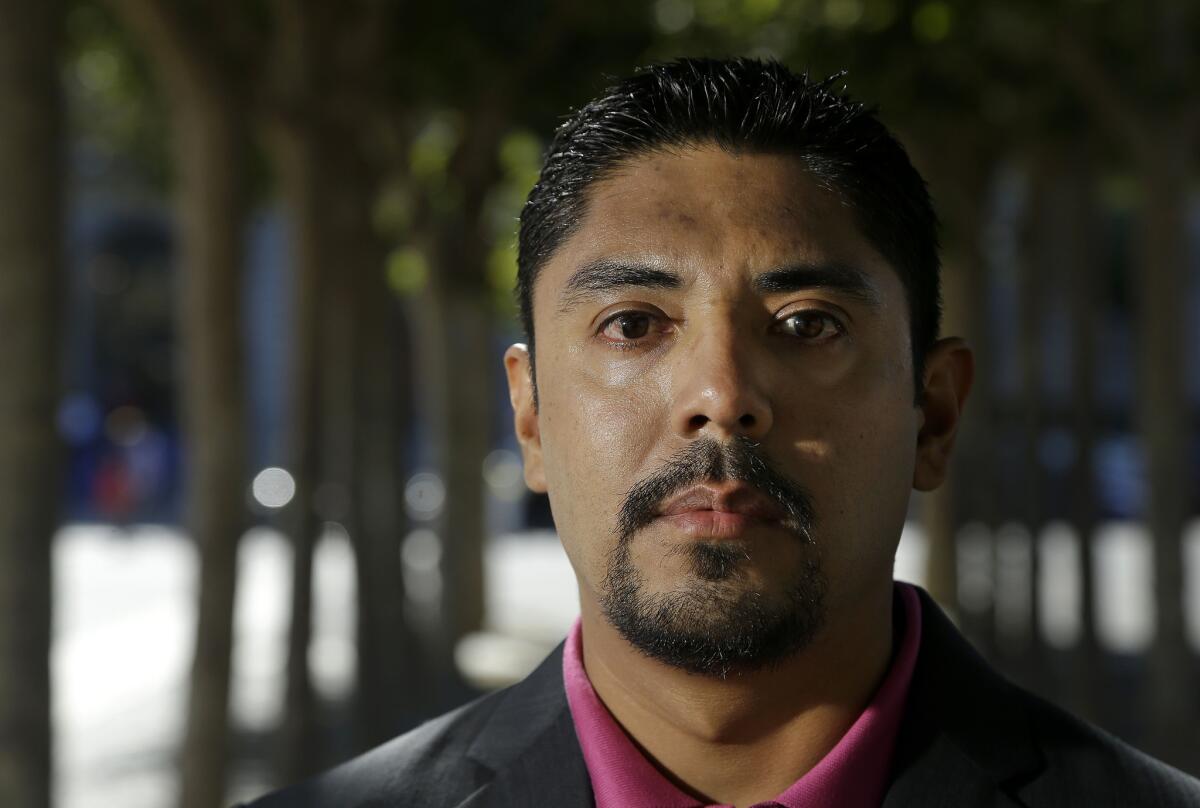Sergio Garcia’s law license limbo

Sergio C. Garcia was brought to the United States illegally by his parents when he was a minor. Since then, he has earned a college degree and worked his way through law school. He’s met all the requirements necessary to become a lawyer, passing the bar exam and receiving a positive moral character determination from the Committee of Bar Examiners. The only thing Garcia lacks is a law license.
The State Bar of California, which normally determines who should receive a law license, has recommended he be given one, and Atty. Gen. Kamala Harris supports his bid to obtain it. But the state Supreme Court, which has the final say, has stepped in to decide whether an immigrant who entered the country illegally is or is not eligible. At a hearing Wednesday, some justices expressed skepticism about whether the court had the authority to fulfill Garcia’s request.
Until now, citizenship has never been a prerequisite to obtain a law license. In fact, the State Bar has noted that immigrants in the country on student or visitor visas have been licensed to practice law in the past. But the Obama administration is arguing that a 1996 federal welfare reform law prohibits immigrants who are illegally in the country from receiving professional licenses from government agencies, or with the use of public funds, unless state law explicitly overrides it. A law license issued by the court is a public benefit, the government argues.
The administration’s opposition to Garcia’s request is misguided, especially given its “deferred action” policy allowing some immigrants who came to the country as children a two-year reprieve from deportation and, as long as they have no criminal record and are under 31, work permits. The administration noted when it adopted that policy that immigrants who were brought here as minors are American in every way but on paper and shouldn’t be deported. Garcia, 36, is too old for the deferred action program but is otherwise an ideal candidate. Moreover, he applied for a green card in 1994, and the government approved his application, but he remains in limbo because of the huge backlog of applications that have led to prolonged delays for Mexican nationals seeking one.
If the California Supreme Court denies Garcia’s request, we hope the Legislature will rectify the problem. It has already indicated that it favors doing so: In 2005, it passed a measure allowing law school graduates who are ineligible for a Social Security number to provide other forms of identification when applying for a law license. Nonetheless, state lawmakers should guarantee that Garcia and others can obtain law licenses by enacting a law that explicitly permits it.
More to Read
A cure for the common opinion
Get thought-provoking perspectives with our weekly newsletter.
You may occasionally receive promotional content from the Los Angeles Times.










